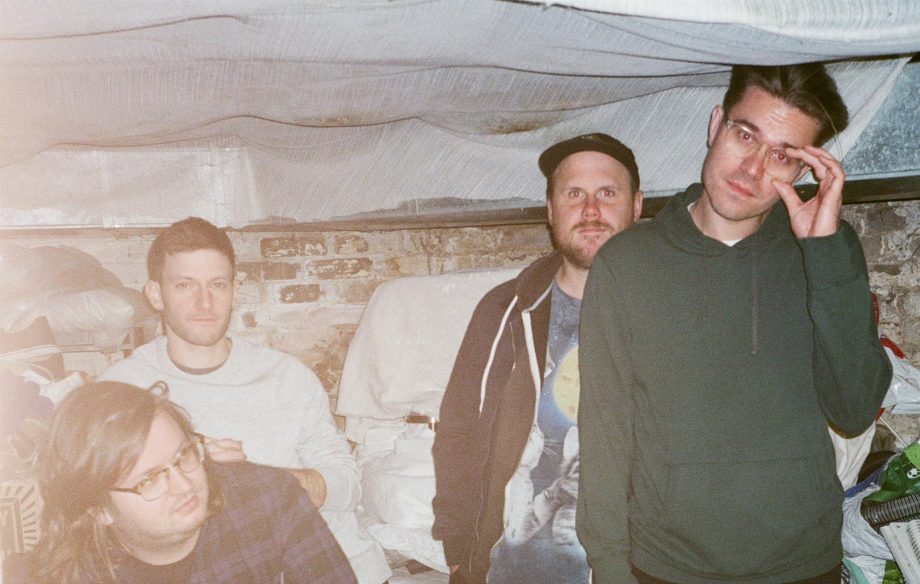On Weezer’s 2001 single “Photograph,” frontman Rivers Cuomo sang, “If you want, you can have it, but you’ve got to learn to reach out there and grab it.” Pup, if nothing else, has done precisely that since the beginning of their unpredictable journey the ranks of alternative music. The Canadian punk outfit has a knack for setting goals and achieving them, often faster than their peers. The members learned early on that the biggest obstacle standing in their way was themselves, and they have long found a way to push past that hurdle in pursuit of their wildest dreams.
Morbid Stuff, Pup’s third studio album, finds the group growing in every way. The music on the record is tighter, the lyrics are more profound, and the relatability is as good as anything you’re likely to find in punk today. Listening to Pup is like having a conversation with a friend who isn’t afraid to tell you harsh truths or disclose their greatest fears. The members wear their hearts on their sleeves while keeping their fists clenched, which creates an abrasive sound laced with empathy that pairs perfectly with the chaos of modern life.
Recently, Pup member Stefan Babcock spoke to Substream contributor James Shotwell about his obsession with Morbid Stuff, the way he deals with stress, and the band’s relentless pursuit of the next great moment. You can read highlights from their conversation below:
SUBSTREAM: How are you?
PUP: I’m good! Just enjoying the last bit of free time, we have before the record comes out.
SUBSTREAM: I’ve been following the album rollout, and it seems like once April hits you will be busy for the foreseeable future.
PUP: Yea, that seems to be how things go for us. We try to go everywhere someone wants us to play, and we have a tough time saying no. It’s a good problem to have, though.
SUBSTREAM: You are road warriors. I often wonder how you find time to write records given how much time you spend touring.
PUP: That was certainly the case with The Dream It Over. With [Morbid Stuff] we tried to do things differently. We took a solid five or six months off the road, and we used that time to sit and write an actual record. As crazy as it sounds, we’d never done that before.
SUBSTREAM: You changed your approach to making a record, but in a lot of ways this very much feels like a Pup record. There isn’t a moment that I can think of where someone would feel like you’ve changed too much or become another group altogether. That said, it still feels fresh. What would you say is different?
PUP: I think the fact we’ve been a band for a while now has made us a better group. I feel like I have really improved as a songwriter. When we put out the first record, I had no idea what I was doing, but now I feel confident about it. There’s this constant progression in everything we’ve done, and over the last several releases we’ve gotten better at having each of us contribute to the creativity. That has made all the difference for me.
SUBSTREAM: Every Pup record has a theme, and this one is certainly no different. Morbid Stuff is a line in a song, so that bears the question — which came first, the title or the song?
PUP: The song came first. But the funny thing is when I wrote that line, and we recorded the song we had no idea that it would become the title of the record. It was one of the earlier songs we wrote for the record, and as we wrote more material, it became clear that would be the title. That whole song, in fact, really encapsulates the album. The lyrics, the music, it’s all in that track. I think it’s a goofy song that’s also bleak, and because of that, it has all the elements that make this band unique.
SUBSTREAM: You do have a knack for making the uncomfortable accessible. The title itself is an example of that. ‘Morbid’ brings a lot of darkness to mind, but the use of ‘stuff’ removes a bit of the fear.
PUP: That is exactly how we felt. When I told the guys the title, they said, “That is fucking stupid. We love it.” That said, as a songwriter, it’s crucial for me to probe the darkness within me without being too self-serious about it. Laughing at yourself is part of the healing process, as is learning not to be too serious about yourself. The things we write about are generally a recipe for brutal fucking emo. Like, there is good emo and brutal fucking emo, and we write the kind of thing that would be brutal fucking emo if we took ourselves too seriously.
SUBSTREAM: Well, I appreciate your take on the darkness. I tend to find myself focusing on the bleak aspects of existence a lot, and humor is often the quickest way to escape.
PUP: Yea it’s a problem for me, and I think a lot of people with mood disorders, that we get caught in a spiral of sadness. For me, the only thing that helps me out is laughter and occasionally music.
SUBSTREAM: Totally agree. I find, however, that music is a lot like religion. Belief is more straightforward when you’re younger. There’s that line in Dogma about how filling the cup of religious belief is easy as a child, but that it gets taller and harder to fill as you age. Relating to music is often similar, at least for me. The old stuff still works, but it’s like a children’s Tylenol. The dose isn’t strong enough.
PUP: Absolutely. I think it’s easiest to relate to music when you are experiencing a lot of firsts in life. As you get older, it gets harder, and songs have to be better for me to relate. That isn’t a slam against anyone; it’s just my perspective.













